You eat (and play board games) with your eyes first. I always enjoyed playing RA, Reiner Knizia’s seminal 1998 Egyptian-themed auction game, but I only came to appreciate it after its recent reprint. It hit the sweet spot of gorgeous but functional, something rarely achieved in an era of overly detailed boards of symbols and icons and giant miniatures blocking line of sight. The personal player boards that lay out which tiles score each epoch and get discarded or stay around and activate at the end of the game are some of the best quality-of-life adjustments I’ve encountered in a reprint since CAPER: EUROPE’s tracks and loot tokens.
After repeatedly playing this new version, I came to appreciate the game’s sneakiest gambit. The first half is an auction game, which is clever and novel in its own right by letting players choose when to call an auction to bid on currency with which they’ll use to bid in future rounds. However, the true genius comes in the final act, where the one player left with bidding tokens engages in a push-your-luck game until they choose to stop or bust. This genre transition should not work as well as it does, yet it flows without interruption, with each segment enhancing one another.
During the auction phase of RA, players either draw a tile to add to the pot or invoke an auction. Players offer Sun disks numbered 1 to 16, and the highest bid gets the pot and whatever Sun disk is already in play to use in the next round. The winning bid is added to the middle for the winner of the next auction. Ra tiles trigger an immediate auction and end the round after a certain amount is pulled. The game ends after three rounds. Some tiles score at the end of the game, some score at the end of a round but get discarded, and players gain or lose points based on who has the highest or lowest value of Sun disks at the end.
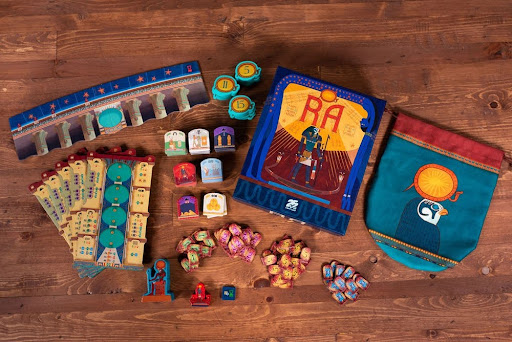
If everyone but one person uses all their disks, the game pivots, turning into a push-your-luck game similar to INCAN GOLD or QUACKS OF QUEDLINBURG. The remaining player takes the bag of tiles and begins drawing, with the option of stopping and spending a Sun disk to take the loot. Like the auction phase, this round ends whenever they’ve used all their sun disks or if too many Ra tiles are drawn. In that case, they bust and lose access to the loot, as if they drew duplicate hazards in INCAN GOLD or too many cherry bombs in QUACKS.
On their own, this phase would be a pedestrian minigame and the auction, clever but not particularly groundbreaking. The feedback generated by these two phases, and the fact that they use the same components to very different effects, makes RA so special. The auction phase consists of players drawing from a bag for a reward that anyone can get, while the push-your-luck aspect consists of giving one person that same bag to use. The Ra tiles serve as a ticking clock hanging over both phases. Some games might’ve featured a convoluted rule about or simply gave nothing to the last player standing with sun disks, yet Knizia brilliantly makes it possible to not bid in an auction game and yet still prosper in the second phase.
The game’s swingy nature, where having or not having a certain tile can be a difference of up to 10 points in a game where scores usually max out in the 40s, makes it all the more enticing to push your luck. For example, you’ll lose five points if you don’t get at least one Civilization tile, while getting more shoots up the rewards from five for three, to 15 for a full set of five. Nile tiles stay with a player the entire game, but they don’t accomplish anything unless you grab one flood tile, which goes away after each round. Finally, the player with the most Pharaoh tiles gains five points each round, while the player with the fewest loses two points. Some have criticized these swings of fortune as too chaotic, which I’d agree with if the game only consisted of the auction. However, the existence of the push-your-luck phase balances it out, because a player can push as far as they want without any of their opponents interfering, with the potential for huge swings and crushing failure weighing heavy every step.
One of the tiles included among the bundles are Disaster tiles, which seamlessly weave into both phases of the game. They force you to discard other tiles, even ones obtained in the same auction and are a key piece to the shifting values that define the tense auctions. When one gets drawn and added to the pile, they change how every player approaches the haul. If the War tile that kills Pharaohs is drawn, then players with many Pharaohs will not want to take it, no matter how juicy the rest of the offering is, while opponents will use that knowledge to their advantage by slipping in with a lower bid.
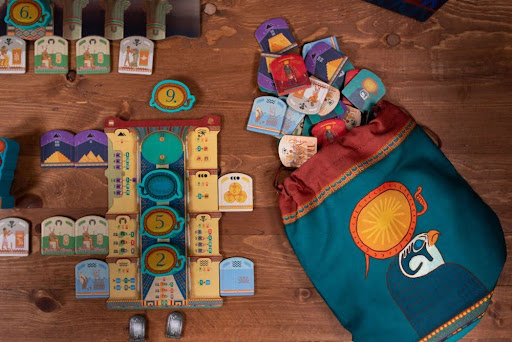
In the push-your-luck phase, these Disaster tiles provide more checks against being too greedy. Now you don’t only have to worry about the Ra track filling up and leaving you with nothing; even the tiles you’ve already gathered are in danger from you pulling the wrong tile when you should have folded and been satisfied with what you had. Since scoring the tiles is often based on getting a certain combination or having more than your opponents, it’s all the more punishing when you lose a Civilization tile and suddenly have negative points, or a loss of Pharaohs gives an opponent a majority bonus.
Trying to decipher the value of a move or play is my favorite aspect of an auction game and the push-your-luck phase forces you to reconsider every preconceived calculation. Whenever you think about bidding for a pile of tiles, there’s the sunk cost of saving your Sun disks and instead trying your luck in the second phase, yet that would also let other players swoop in and get the loot in the auction instead. Similarly, the angst of seeing the Ra track fill up might force you to take a lesser buyout because it’s better than the alternative, only for someone else to push their luck and have fate smile upon them in the second phase.
Many point to TIGRIS & EUPHRATES as Knizia’s magnum opus, and while I’ve never played it, and thus cannot offer any judgment on this label, RA deserves to be in the conversation. It weaves the two genres of auction and push-your-luck in a way that brings out the best aspects of both, with all the interesting value judgments and game theory of the former and each agonizing and tempting step in the latter. With such a beautiful, functional version on the market, it’s the perfect time to try and appreciate such a divine transition.


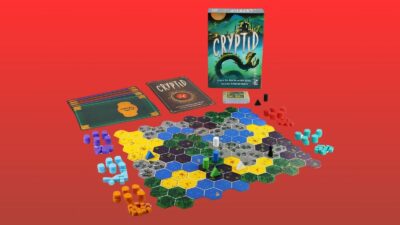

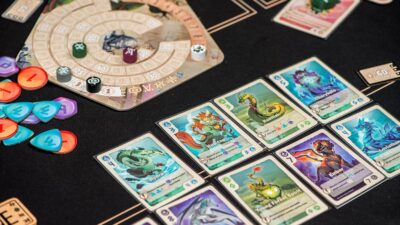
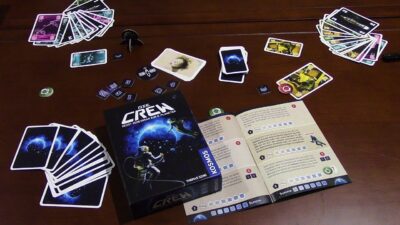
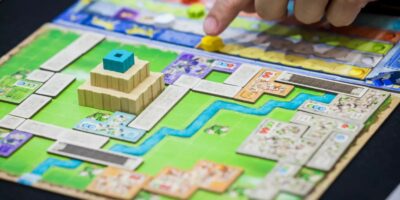
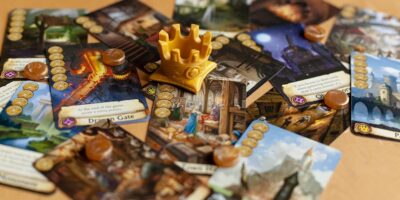


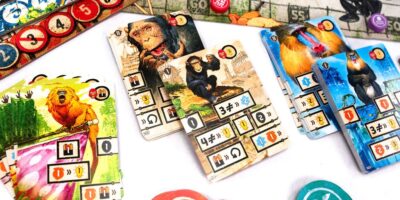
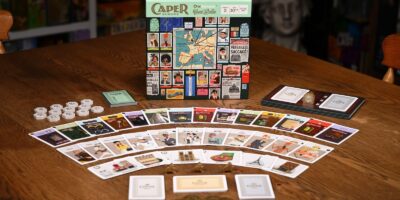
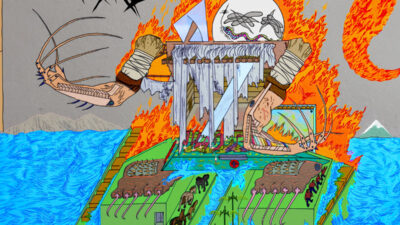



Comments